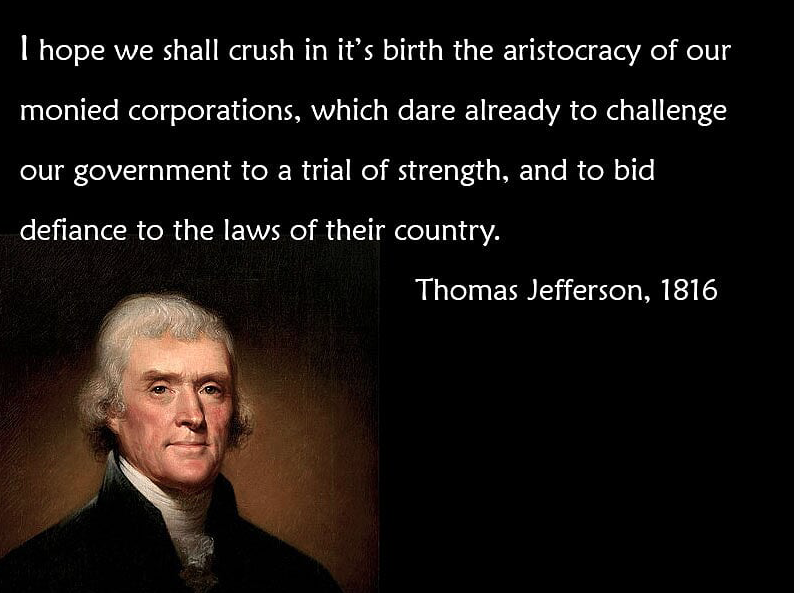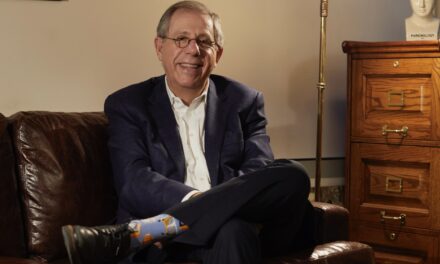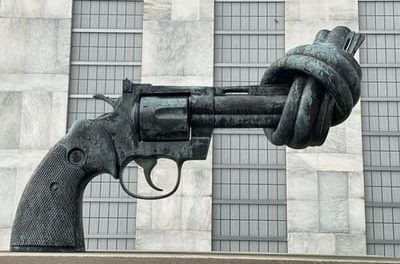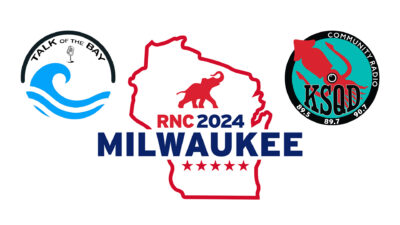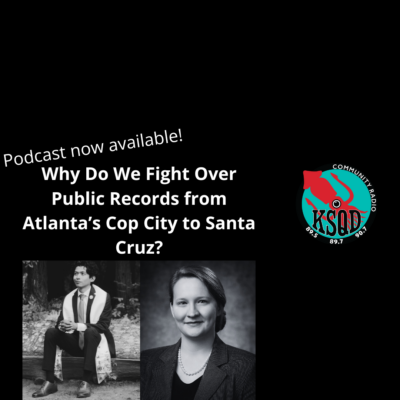
In this episode of Good News Santa Cruz Christine Barrington interviews political scientist Paul Schaarfsma to reconsider common assumptions related to the role corporations play in a democracy and the principles under which they are allowed to operate.
Few citizens have received a strong education around the dim view many of our founders held related to monied corporations and Paul takes us on a brief survey to offer up a new context for a revised view of “business as usual.”
In 1816, Thomas Jefferson, principal author of the Declaration of Independence, said he hoped to “crush in its birth the aristocracy of our monied corporations, which dare already to challenge our government to a trial of strength and bid defiance to the laws of our country.” In 1827, James Madison, known as the father of the Constitution, wrote that “incorporated companies with proper limitations and guards may, in particular cases, be useful; but they are at best a necessary evil only.” President Andrew Jackson became concerned about the political clout of a corporation called Second Bank of the United States. In his 1833 message to Congress, Jackson asked whether the American people are to govern through their elected representatives or “whether the money and power of a great corporation are to be secretly exerted to influence their judgment and control their decisions.” And, in his 1837 message to Congress, President Martin Van Buren warned of “the already overgrown influence of corporate authorities.”
But corporations kept pushing.
After the 14th Amendment, ratified in 1868, significantly expanded civil rights protections intended for the benefit of former slaves, lawyers for the Southern Pacific Railroad Co. tried to use it to avoid a tax assessed by Santa Clara County, California. Southern Pacific said it was a person under the 14th Amendment and the tax on railroad property was not equal because it was not assessed to other persons, which violated its rights. The case went to the Supreme Court, which in 1886 ruled in favor of the railroad based on California law, not on the premise that a corporation is a person under the Constitution. However, the idea had caught flame and continued to burn. What followed was a slew of Supreme Court cases in which big corporations demanded constitutional rights trying to protect themselves from increasing cries to break up monopolies, ban corporate giving to politicians, and protect workers and the environment. And now we find ourselves with the situation our founders could never have imagined: a tsunami of corporate influence flooding every aspect of our democracy and comprising the very foundations of our political system. The 2010 Supreme Court ruling commonly recognized as “Citizens United” has offered corporations a free path to influence political campaigns with large scale contributions.
One of the most powerful acts a citizen can undertake is to educate themselves and shift their own mindsets related to how corporations are allowed to operate in the United States. If citizens truly unite and demand change perhaps the United States can become a true democracy.

